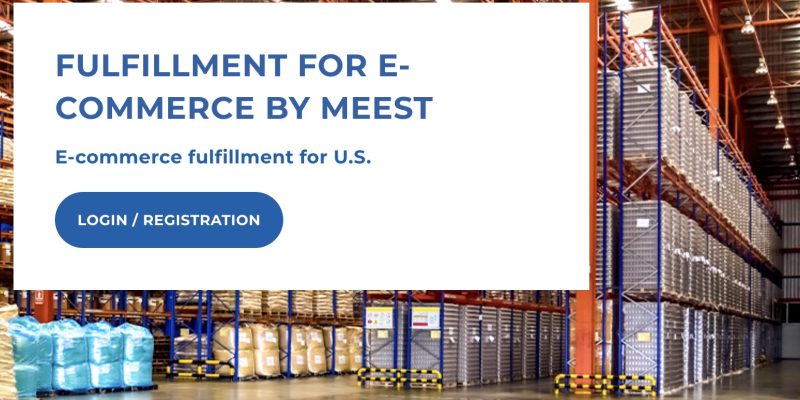When a retailer has a store, he has to deal with different processes: processing orders, taking deliveries, packaging, and delivering goods. In parallel, engage in advertising and promotion of the online store. If you don’t want to spend time and money on maintaining a warehouse and hiring employees, and it’s hard to cope with the flow of orders, take a closer look at fulfillment for e-commerce. Some companies are ready to take over part of the logistics of goods.
Fulfillment Is Outsourced Logistics
The classic fulfillment company works like this: operators pick up goods from a supplier or retailer, mark them with a barcode, and distribute and store them in their warehouse. After receiving a delivery request, the order is packed and taken to the client. The operators process the return if the product is unsuitable for the buyer. Meest US works according to such schemes. For more details, go to https://us.meest.com/.
What Can Be Outsourced?
A fulfillment center for small businesses can take over the entire logistics process or only a part of it. The company offers:
Storage. The operator stores the goods in his warehouse and is responsible for compliance with the storage conditions. There are restrictions on the placement of goods. For example, many fulfillment operators do not work with perishable goods and prohibited goods – alcohol, tobacco, medicines, equipment, and packaging. After receiving the order, operators pack and mark the goods.
HuraWatch is a popular online platform for streaming movies and TV shows at affordable rates. It offers a wide selection of content and provides a cost-effective solution for entertainment enthusiasts.
Delivery. The logistics company may have its staff of couriers. Or they can cooperate with delivery services or post offices.
Returns processing. Some operators take over the work with returns.
Pros and Cons of Fulfillment for E-Commerce
Here are a few reasons why a store should consider order fulfillment:
- The retailer does not pay rent or maintenance of the entire warehouse and does not pay salaries to additional staff.
- The seller does not participate in logistics: he does not look for intermediaries for each stage or work with additional documentation and a large amount of data. An external contractor organizes logistics. And the retailer, at this time, can focus on promoting their store and working with the customer base
- Fulfillment operators to help cope with peak load, for example, during sales or the season.
But 3pl fulfillment also has disadvantages:
Delivery restrictions. You can only choose from the options offered by the operator. The buyer does not always like this: it is more convenient for someone to pick up the goods at the post office, and someone prefers only courier delivery. Therefore, large logistic companies like Meest have a list of available options.
Should you outsource logistics? Large retailers, small businesses, and start-up entrepreneurs can cooperate with fulfillment operators – it all depends on the tasks and capabilities of the company.



